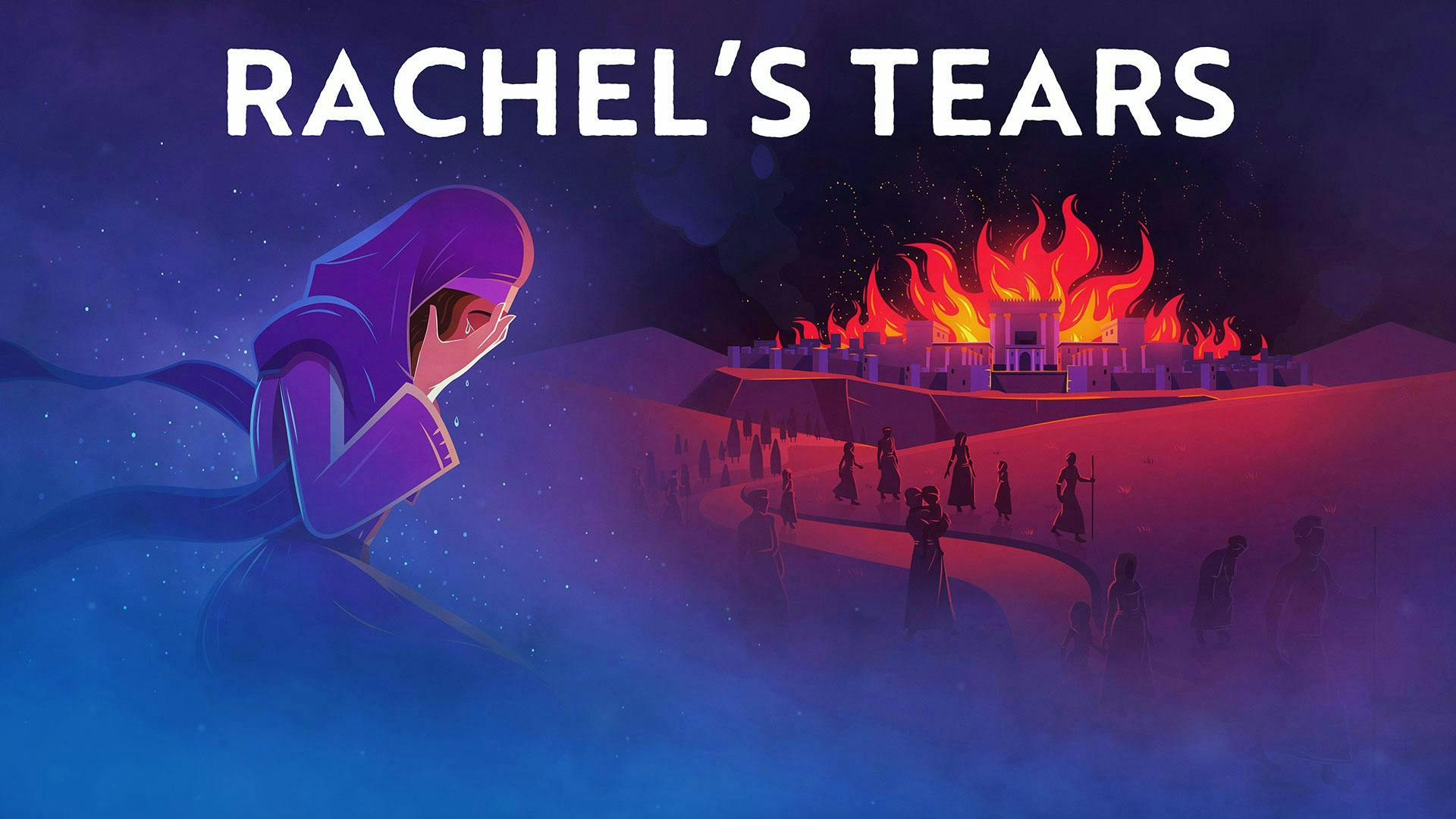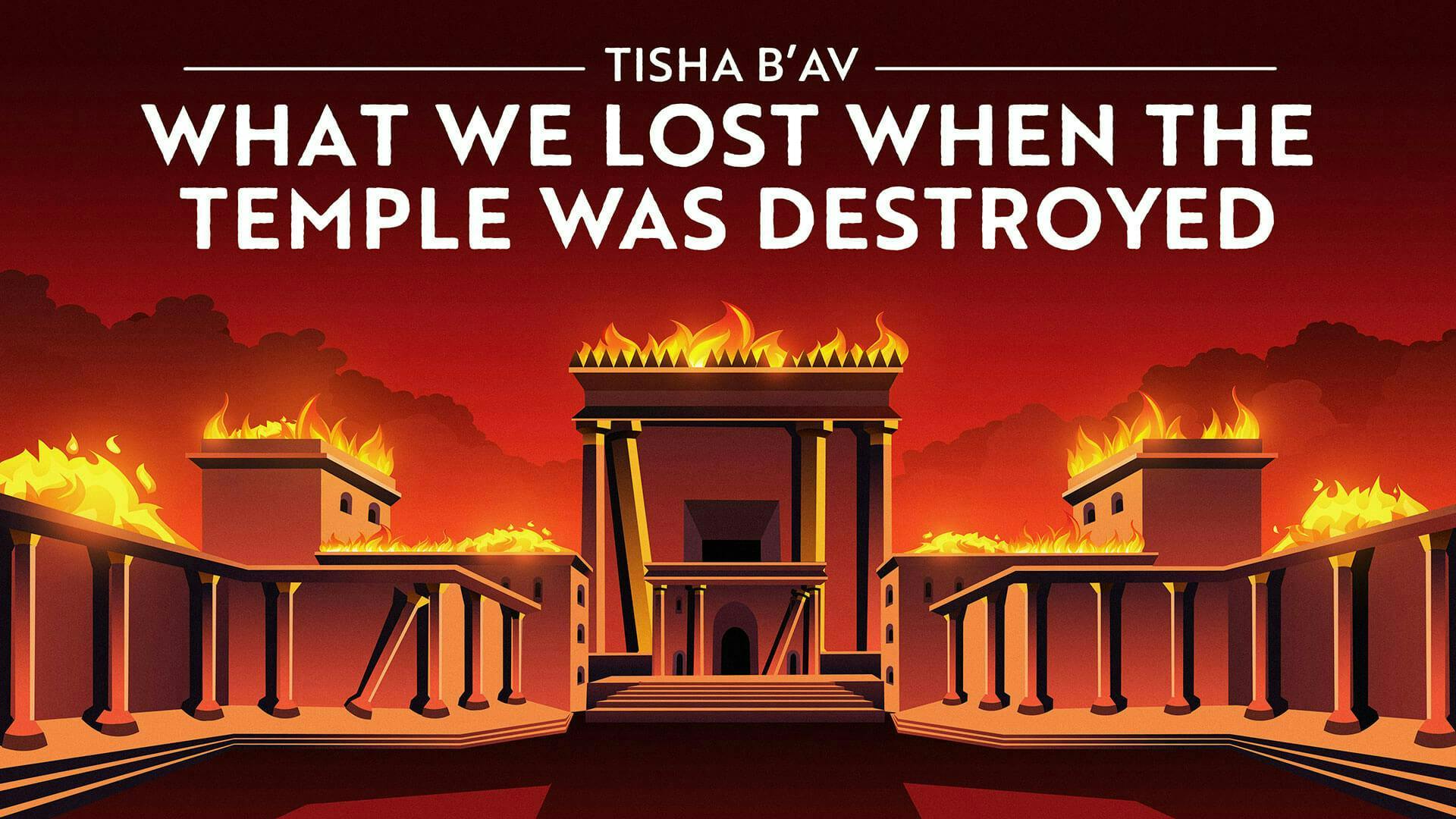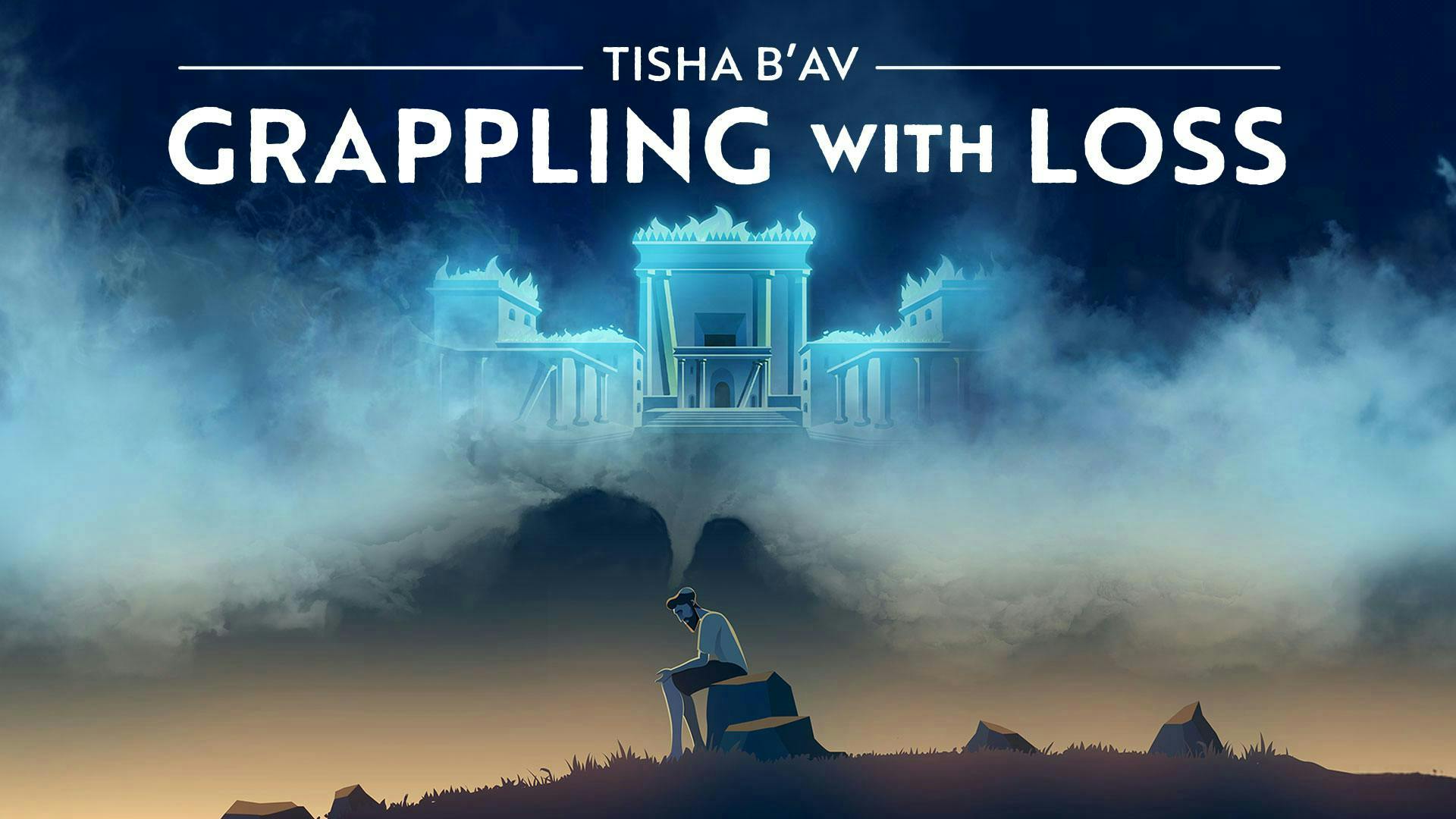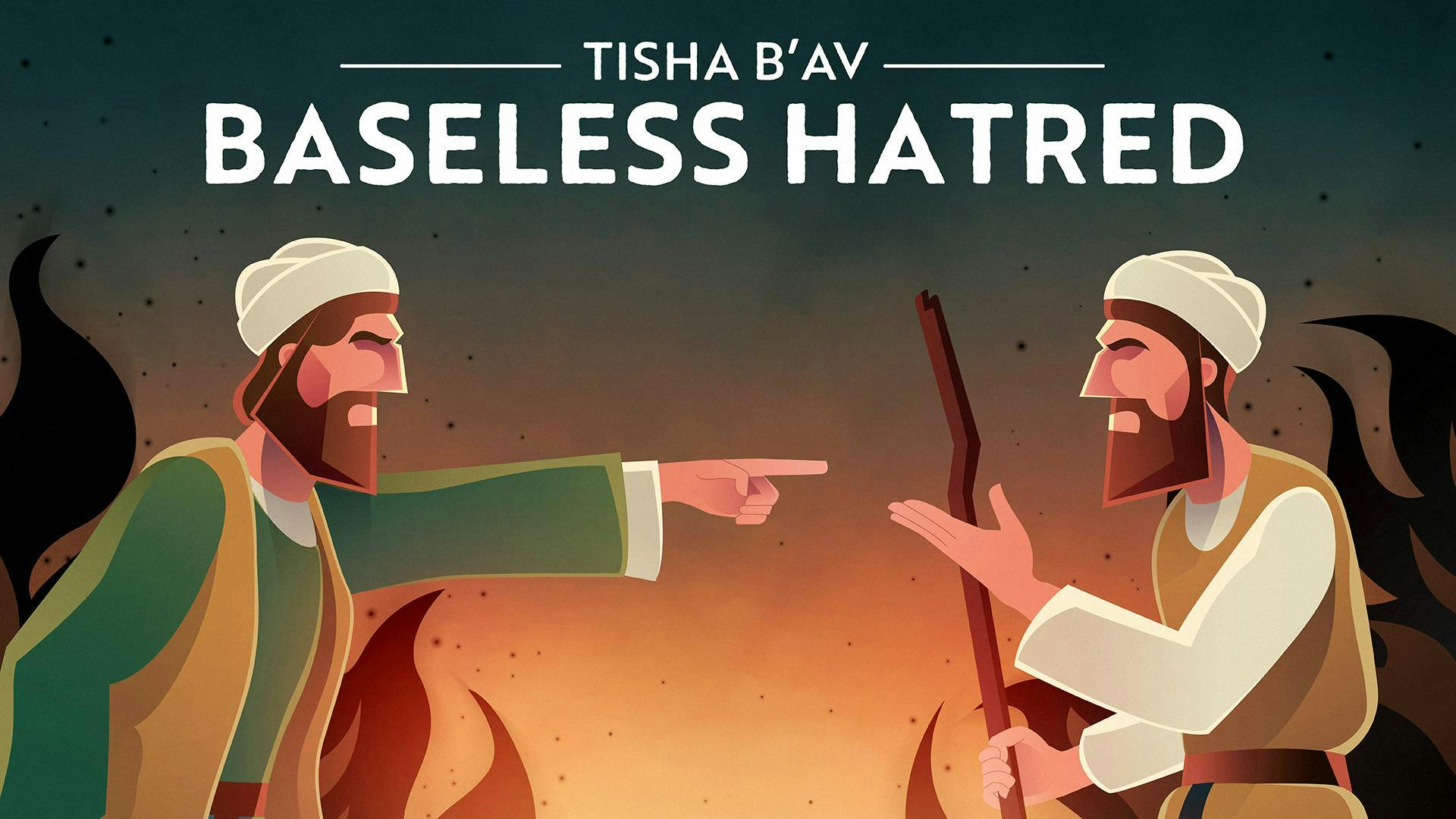Top 5 Tisha B’Av Videos
Your Curated Guide To A Meaningful Tisha B’Av
By Ari Levensohn | 24 May 2024 | 5 Minute Read
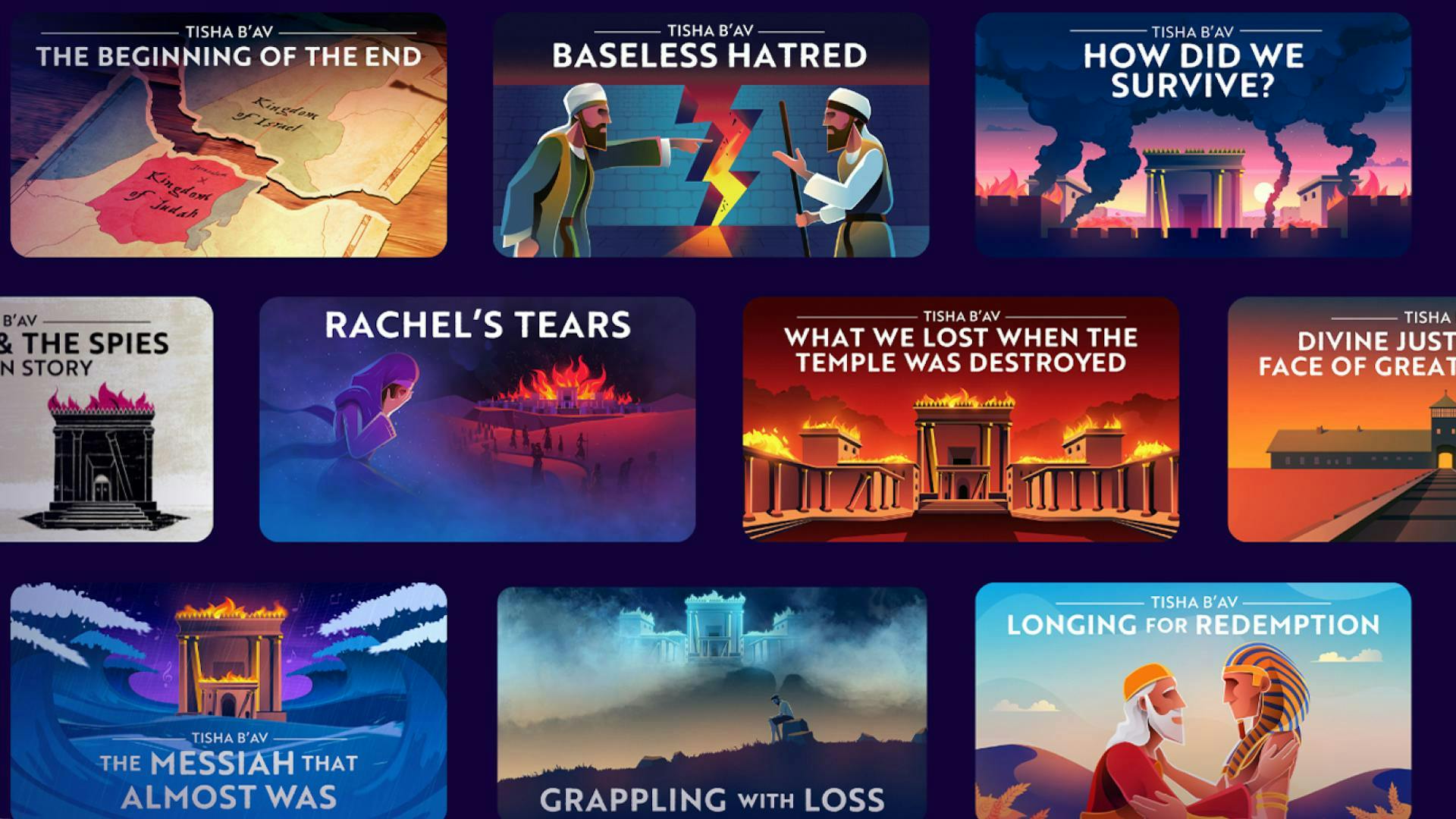
What Should I do on Tisha B’Av This Year?
Tisha B’Av is probably the single hardest day in the Jewish year. We know we are supposed to spend the day engaged in meaningful mourning, but how? How long can we sit on the floor reading kinot (mournful prayers)? How many holocaust movies can we watch? And however we pass the time, are we really connecting on a deep emotional level to the meaning of the day?
Luckily, we have you covered! Every year, thousands of people flock to AlephBeta.org, for our game-changing library of Tisha B’Av videos. Each of these videos comes along with beautifully, attention-capturing animation that will make learning easy, and is sure to transform your Tisha B’Av.
Not sure where to begin? We curated our favorite Tisha B’Av videos for whatever mood you're in.
Plus, we put special attention to include videos that are relevant to our first Tisha B’av after the massacre of October 7, which will be on all of our minds as we mourn this year.
Top 5 Videos to Watch This Tisha B’Av
1. Most Watched
With hundreds of thousands of views, “Rachel’s Tears” continues to inspire year after year. Through the lens of Rachel, our matriarch, Rabbi David Fohrman explores how we can channel our pain and anguish towards personal growth and creating meaningful change in our closest relationships. And, as a bonus, this content has recently been completely reanimated, so the nuanced ideas come to life in a meaningful and accessible way.
2. New This Year: Processing October 7th
The massacre of October 7th, and the painful ramifications that followed, have been in our hearts all year. This Tisha B’Av, the Jewish day of mourning, we will all be thinking about the worst tragedy to befall the Jewish people since the Holocaust. But how do we bridge the gap between this fresh, raw pain, and the much diluted, distant pain of ancient tragedies? That’s exactly the topic of Rabbi Fohrman's brand new Tisha B’Av course which is soon to be released. Check out Aleph Beta’s Tisha B’Av homepage or leave your email below to stay up to date.
3. Mourning the Beit Hamikdash (Temple)
More than anything, Tisha B’Av mourns the destruction of the first and second temple, but it is really hard to mourn something that we lost 2000 years ago, that we have never even experienced. What is it that we are even missing? In this video, Rabbi Fohrman uncovers a connection that ties the temple all the way back to the creation of the universe. He shows how the temple was so much more than a building, and exactly what the universe is missing without it.
4. Coping with Tragedy Throughout Jewish History
Tisha B’Av has always been bigger than any one historical event. While it primarily mourns the destruction of the first and second temples, it also mourns the sin of the spies, the defeat of the Bar Kokhba revolt, the crusades, the holocaust, and pretty much every tragedy that has ever struck the Jewish people, personal or communal. Naturally, this mourning forces us to confront the question of why God lets bad things happen to good people. Drawing on the wisdom of Isaiah, Rabbi Fohrman offers a novel approach to theodicy and the very nature of evil.
5. Best to Watch With Kids
It is hard enough to make Tisha B’Av meaningful for ourselves, how are we supposed to engage our children? Today isn’t only about mourning. It’s also an opportunity to grow as people, which provides the perfect educational opportunity. In this video, Rabbi David Fohrman opens up the section of Talmud which teaches that the temple was destroyed because of “baseless hatred.” But who hates for no reason? I don’t! Could it be that we are misunderstanding what baseless hatred really is? This video is sure to lead to fruitful discussions with your children about the history of Tisha B’Av and how to manage our emotions towards other people.
Tisha B'Av Videos
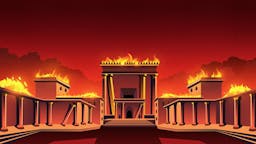
How Am I Supposed To Appreciate The Loss Of The Beit HaMikdash?
Video series • Part 1 of 7 • 9 min
It’s one thing to mourn the suffering of actual people, but how are we supposed to feel genuinely sad over the loss of a building?
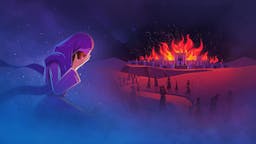
Reversing Tisha B’Av: How To Actually Rid Ourselves Of Sinat Chinam
Video series • Part 1 of 5 • 8 min
We sit on the floor, we cry – but sometimes it feels like we’re just going through the motions. Rachel Imenu shows us a deeper way to mourn — that actually changes us, that banishes sinat chinam, baseless hatred, from our hearts.

Why Does God Let Us Suffer?
Video series • Part 1 of 6 • 11 min
If God loves us, why does God let bad things happen to us? This question may be impossible to answer, but on Tisha b’Av it’s just as impossible to ignore.

Kamtza And Bar Kamtza: What Is Baseless Hatred, Anyway?
Video series • Part 1 of 5 • 3 min
When was the last time that you hated someone for absolutely no reason? Could it be we’ve been misunderstanding the true meaning of “baseless hatred” this whole time?
More Tisha B'Av Content
What is Aleph Beta?
Aleph Beta is a unique kind of Torah library. Led by our founder, Rabbi David Fohrman, we are dedicated to high-level, textual Torah learning for adults that is intellectually and spiritually sophisticated, that enlivens your Jewish practice and helps you forge a deeper connection to God. Whether you’ve been learning in yeshiva for years or you’re just beginning your Torah journey, you’re sure to find something meaningful and surprising waiting for you here.
Browse our library of over 1,000 beautifully produced animated videos, podcasts, deep dive courses, and printable guides. Topics include the weekly parsha, Jewish holidays & fast days, laws & mitzvot, prayers, relationships, big philosophical ideas and more. Have something to say at the Shabbos table that will amaze your family and guests and bring deep meaning into their lives.

